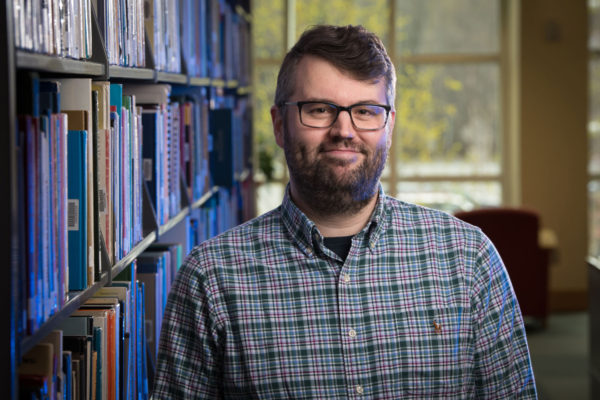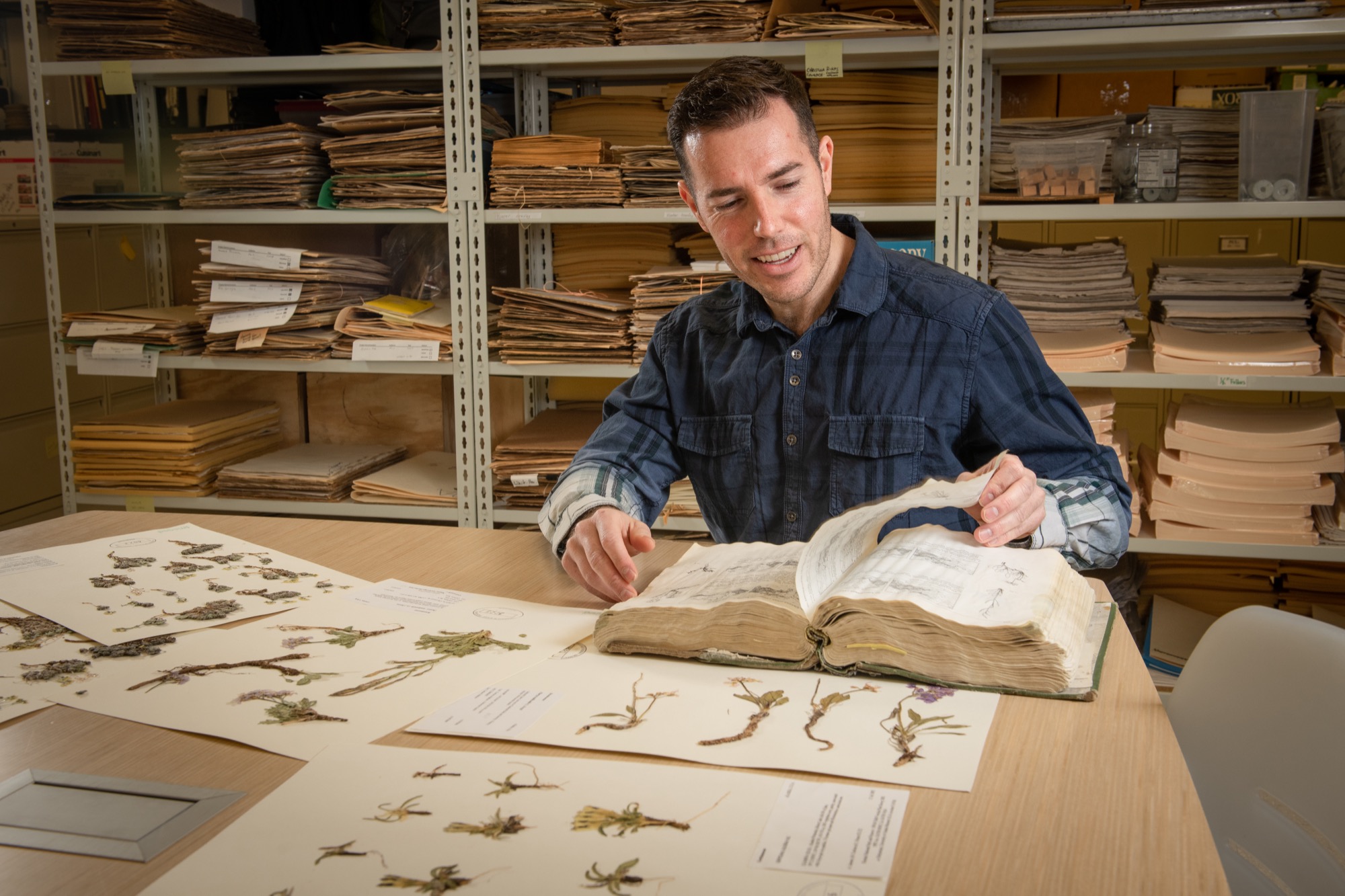Cracking the code
by Matt Jardin |

Not long after defending his Ph.D. dissertation at NC State University, UAA alumnus Peter Kudenov, B.A. '09, M.A. '13, returned to UAA to talk about his surprising journey from computer science to English during a graduation event keynote address. (Photo by James Evans / University of Alaska Anchorage)
At the end of a 40-hour, blockbuster video game like Mass Effect or Read Dead Redemption, players are meant to feel a sense of catharsis from their expansive and immersive journey.
Computer programmer and UAA English alumnus Peter Kudenov is more than familiar with that feeling, both in the digital sense and in the real world. His master's research at UAA examined how games use rhetoric to keep players engaged for days, weeks and even months.
More recently, Kudenov finished defending his Ph.D. dissertation at NC State University titled "Software Engineering as a Problem-oriented Socio-technical Regime." In it, he charts the history of software engineering, examines its place among current social and technological organizational systems, and argues how its diagrammatic process can sometimes lead to misinterpretation for the humans on the other side.
Upon first glance, the combination of English and computer science can seem like the coming together of two disparate disciplines. But Kudenov demonstrates that they're more alike when you start to delve beneath the surface.
Originally studying computer science at Evergreen State College in Olympia, Washington, Kudenov was offered a job with Anchorage tech firm E-Terra in 2001 before graduating. While he jumped at the chance to get a head start on his career, Kudenov explains that the feeling of not finishing his degree never sat right with him. So he enrolled at UAA in 2006 to officially complete his computer science degree.
Kudenov's course load consisted of a mix of computer science classes that retread information with which he was already familiar, and general education requirements (GERs). One of those GERs was poetry, which Kudenov credits as the unlikely class that sparked his transition toward English.
"More and more I was taking English classes, and less and less I was taking computer science classes," recalls Kudenov. "Oftentimes people look at a degree like English and wonder what kind of job you can get with that. But the reality I've seen is really anything you want, it just comes down to where you're willing to look. It's a very valuable set of skills. It's not just writing, it's comprehension, and everybody needs that."
According to Kudenov, the journey from computer science to English isn't as far when you realize the road that links both subjects is paved with a similar reliance on formulas, structure and thought processes.
"Part of what appealed to me was the research," describes Kudenov. "The toolbox and techniques that English offers is distinctly suited to helping you fit all these methods and theories together to see what works and think through different perspectives with depth and arrive at something new. It's really quite a special thing."
Kudenov's aforementioned master's research, titled "Rhetorical Player Engagement in Fallout: New Vegas," is perhaps the simplest way of illustrating the connection between English and programming, where dynamic dialogue can branch off into hundreds of possibilities that are unique to each individual player, creating an unmatched sense of personalization.
"Engagement is one of those things I've always thought about," says Kudenov. "When you start a game like Fallout, it lures you in. It seduces you to sit there and spend four more hours. It's a type of environmental storytelling. You're seeing all the details, you're hearing it, you're finding goals the game is handing you, and it continues to be engaging. These games use this type of rhetorical strategy that's designed to persuade you to keep identifying with the game. It's something that you continue to invest in and reinvest in, and it's really fun."
To some, breaking down English into its component parts and examining them under a microscope - akin to how a programmer or coder might approach his or her work - can come across like the demystifying of a field traditionally romanticized for being artistic. When pressed about this view, Kudenov points out that a thorough understanding of literature's minutiae is essential in order for the stories that impact us most deeply to exist.
"We've always tried to schematize things so we can understand them. This is where I make another parallel with engineering and best practices. You have to know the rules to break them effectively in a way that people are going to appreciate," explains Kudenov. "I can definitely see why one might think that makes it coldly logical, but I've never really thought about it that way because it's just like you're using a new medium to make something beautiful, and that's what I've always thought literature has always been about."
Written by Matt Jardin, UAA Office of University Advancement
 "Cracking the code" is licensed under a Creative Commons Attribution-NonCommercial 4.0 International License.
"Cracking the code" is licensed under a Creative Commons Attribution-NonCommercial 4.0 International License.














